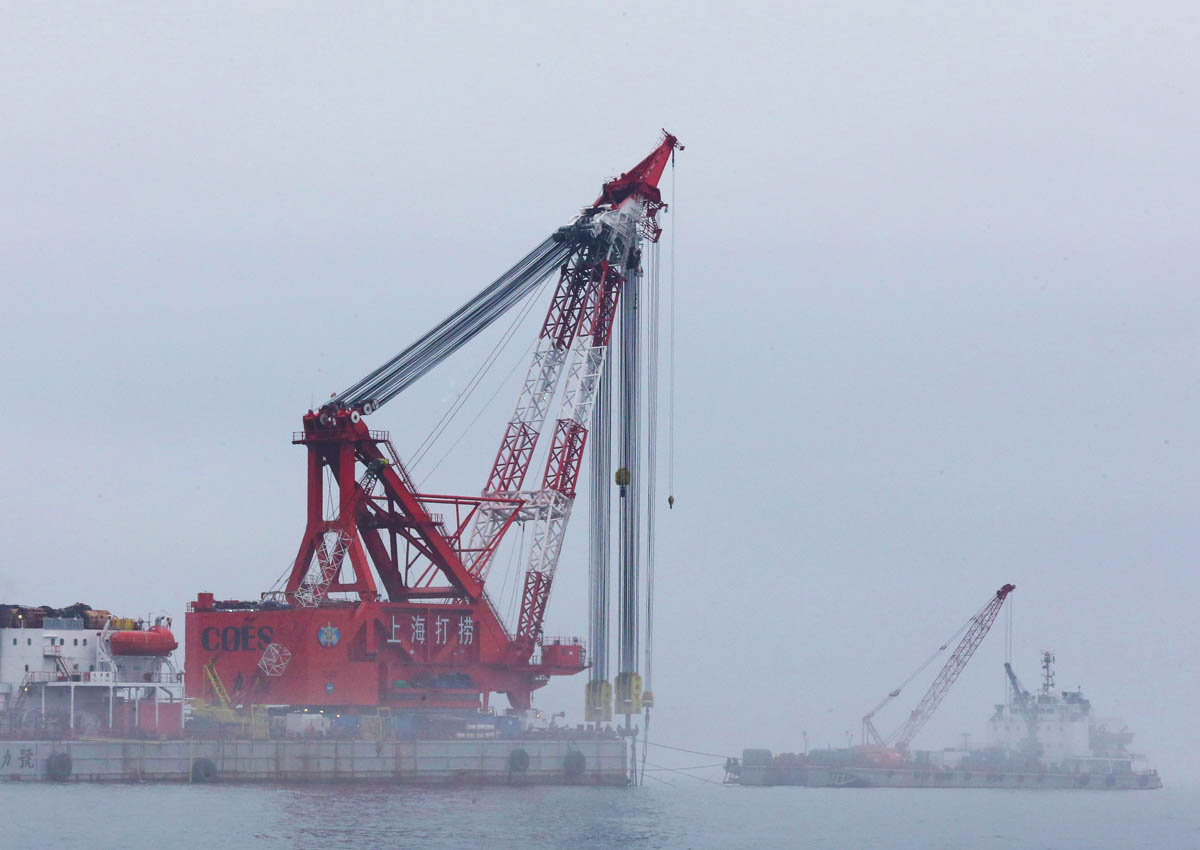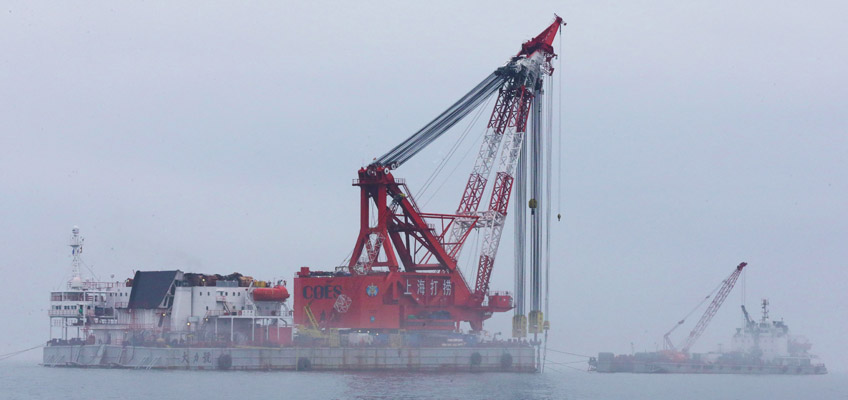Seoul – A salvage firm Sunday began a difficult and costly operation to raise a sunken South Korean ferry which capsized at sea more than two years ago in a disaster that shocked and enraged the country.
The Sewol was carrying 476 people when it sank off the southwestern island of Jindo in April 2014, with the loss of 304 lives – most of them schoolchildren.
Bringing the ferry to the surface has been a key demand of some victims’ families, who hope nine bodies still unaccounted for may yet be recovered.
The Seoul government last year announced plans to salvage the 6,825-ton ship and selected a Chinese consortium led by state-run Shanghai Salvage Co. to spearhead the $72 million project.
“The operation began at 2 p.m.,” Jung Seong-Wook, a bereaved family member who acts as a families’ representative for the salvage project, told AFP.
Jung was one of dozens of family members watching the work anxiously from fishing boats in foggy weather.
Preparatory work was completed early in the morning, with the salvage firm’s main crane positioned near the bow and several cables attached to the ferry.
The lifting of the bow section – which will be conducted over the next two days – is seen as the most challenging part of the operation.
“This operation takes up about 70 per cent of the overall salvage project,” Jung said.
Once the bow is lifted, work to place 18 lifting beams beneath the ferry will begin.
If the lifting operation goes announced smoothly, the Sewol may be brought to the surface by late July.
The Sewol lies more than 40 metres (130 feet) beneath the surface, and officials say lifting the 145-metre-long vessel from the seabed without causing it to break up will be the main challenge.
A naval architect involved in the project put the success rate at 80 per cent at a press briefing in April, saying lifting a wreck in one piece from such a depth had never been done before.
The disaster was mainly due to human error – an illegal redesign of the ship, an overloaded cargo bay, inexperienced crew and a questionable relationship between the ship operators and state regulators.
Captain Lee Jun-Seok was sentenced to life in prison for “murder through wilful negligence” and sentences ranging from two to 12 years were passed on 14 other crew members.





























































































































































































